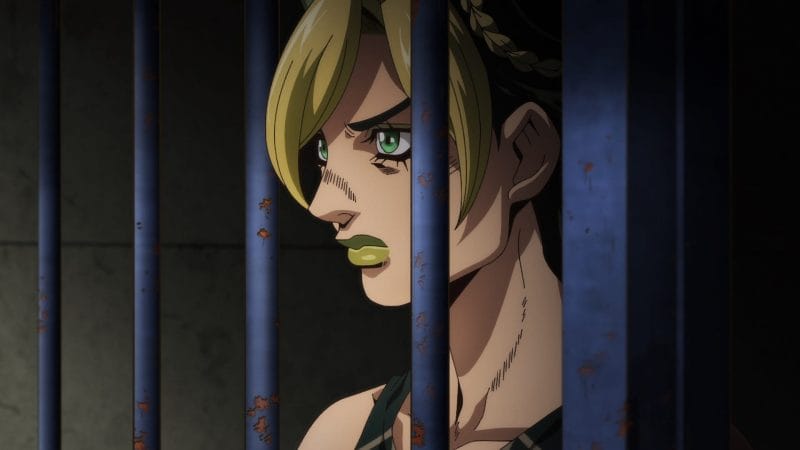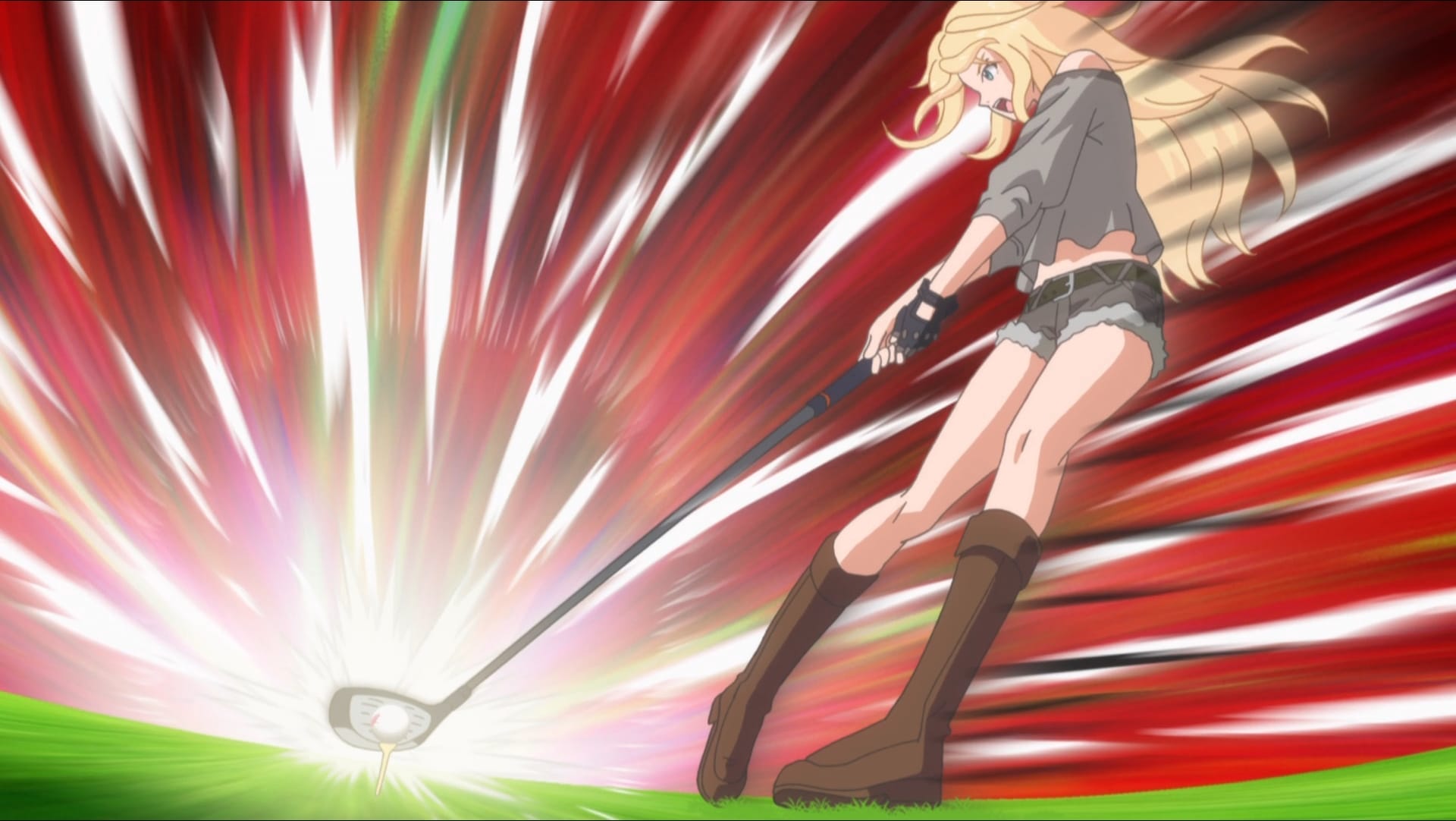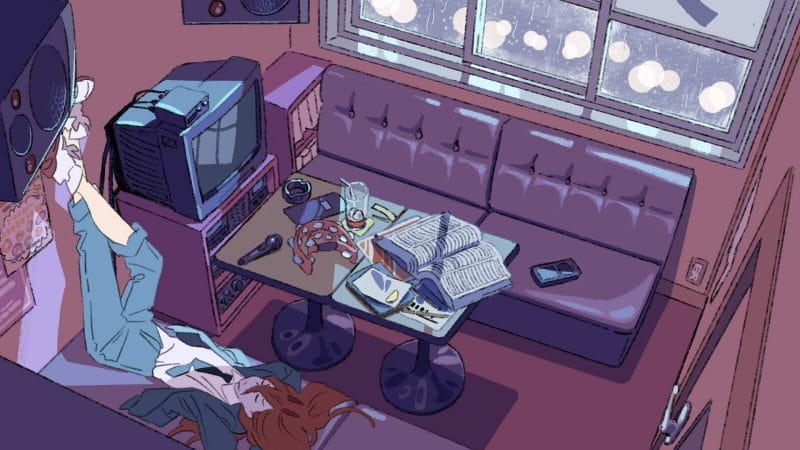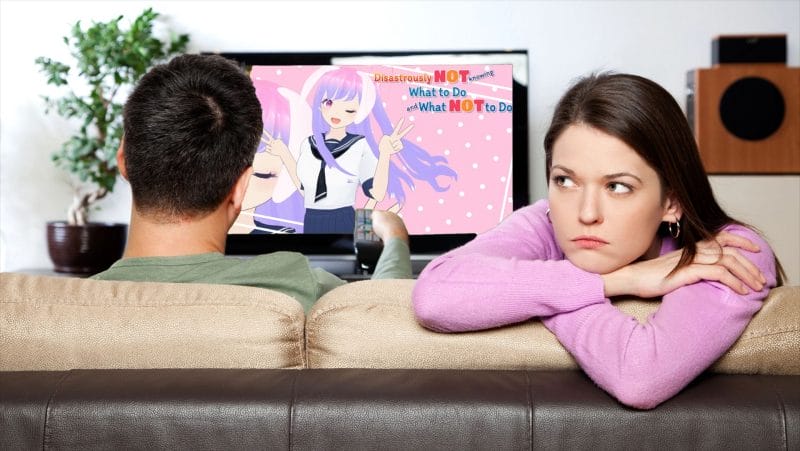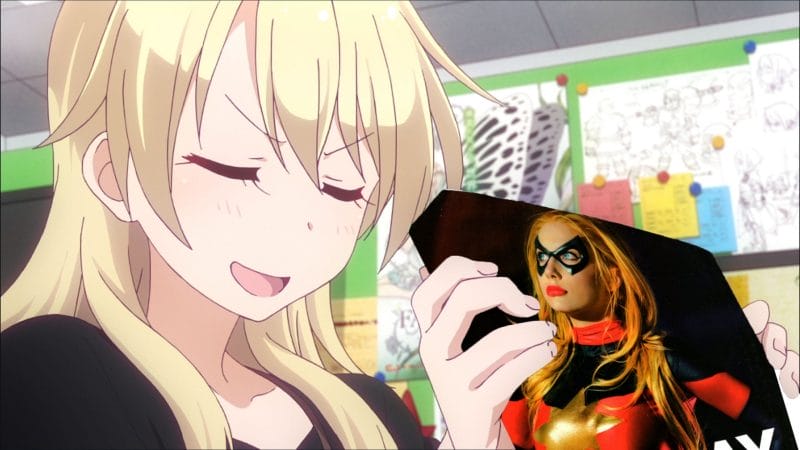A Unique Anime
Is there any greater vibe than settling down to watch some cozy anime content that makes you laugh again and again? Maybe you’re more of the shonen type, but for me it’s the quiet, feel-good anime that I crave most often.
The good news is there’s no shortage of comedic and lighthearted slice-of-life shows. The bad news is, let’s be honest, most of them aren’t that great. They don’t quite satisfy the itch, hit the spot, or whatever metaphor you want to use. They’re a little like pizza; even the low-quality stuff isn’t exactly bad (well, okay, sometimes it is), but come on…there’s got to be better, right?
The answer is yes! One of the best feelings is stumbling across a gem in the field of dull stones. These are shows that showcase exceptional storytelling skills, do something bold, or surprise us with such quality content that we can’t help but be captivated. These are shows that stand out in our memory among the long list of other productions that have faded into the shadow of obscurity.
Gems like this don’t come up too often, so when they do it’s a special experience. One of the best I’ve found, unexpectedly, was Bocchi the Rock! I don’t remember exactly what I expected from this anime. The premise—a socially inept shut-in tries to change her ways by joining a band—was promising, but many premises are. What I didn’t expect was the show’s incredible execution, and the ways it achieved all the things mentioned above.
By unifying distinctive comedy, well-developed and unique characters, and a strong narrative arc, Bocchi the Rock! managed to craft a compelling story that deserves to be lauded for years to come.
But why is the series so, well, good?
The Comedy Hits Hard

It’s funny. Do you need to know anything else?
When it comes to anime, especially slice-of-life, we’re accustomed to a slew of comedic tropes, from blundering attempts at romantic connection to loud and jubilant personalities that shout every other line of dialogue. There’s nothing wrong with these tropes, provided they’re treated well. If the characters, their relationships, and their interactions are developed richly enough then these tropes can be downright delightful.
Take, for example, The Quintessential Quintuplets, a harem comedy about five sisters begrudgingly tutored by fellow student, Futaro Uesugi. This show isn’t exactly groundbreaking. Uesugi also fits the familiar mold of the straight-laced, competent, but oblivious male protagonist. Still, the dynamics between the characters and glimpses of Uesugi’s buffoonery make for some moments of comedy gold.
So what’s the secret ingredient? Why do some comedies slip into tired and timeworn clichés while others really nail the funny bone? Well, it would be lying to pretend I’m an expert on being funny, but I think a basic answer here is two-fold:
Good comedy comes from establishing expectations and then breaking or bending them in some unexpected way. In other words, we need to know something well enough before it can really surprise us and make us laugh.
This is especially true of fictional characters. If the character isn’t fully developed, if we don’t get a strong enough sense of who they are and what makes them tick, then their actions and interactions will feel hollow.
Whether making an emotional confession or cracking a joke, it should come from a place of established characterization, or it’ll fall flat. That’s how we end up with clichés and comedic tropes so overdone and generic that it feels as if they could be applied to any character and produce the same effect.

That’s when character devolves into caricature, and instances of this in slice-of-life are abundant. Common ones include: the impossibly dense male protagonist (especially in romance), deredere and bakadere girls whose unwavering positivity and airheadedness leads to constant blunders, and characters that lean so heavily into one aspect of their personality they make baffling decisions in service to it. A good example of this last one is Hayase Nagatoro, whose relentless bullying of Naoto Hachiouji in Don’t Toy With Me, Miss Nagatoro, is perplexing after their romantic feelings have clearly become mutual.
These tropes don’t always fall into cliché and caricature, but they often do. It takes skilled storytelling and sharp narrative execution to use them in a way that feels fresh and unique. Many shows fall short of this.
Not so with Bocchi the Rock! The most delightful comedic moments in this series, from Ryo Yamada’s hilarious deadpan one-liners to Hitori “Bocchi” Gotou’s habit of climbing into trash cans, are deeply tied to character.
These antics wouldn’t make sense with anyone else. Why? Because certain expectations of the characters have been established, making it possible for viewers to recognize when actions or expressions of personality are either in-character or out-of-character.
Take Bocchi climbing into trash cans as an example. If another character in a different series did this, it might be funny but would probably strike us as strangely random. Bocchi, however, wallows in extreme self-deprecation and has the tendency to react to challenging situations by slinking away in pitiful retreat. So, when Bocchi seeks refuge in refuse, it’s just random enough to have a comedic edge, but it also resonates with her character. That’s why it works.
The same concept applies to other examples. Bocchi starting lines of dialogue with “ah…” reflects her crippling uncertainty and awkwardness. Ryo’s shameless mooching to get free food extends from her own brand of off-beat social ineptitude and her lack of care for how she inconveniences other characters.

By thoroughly developing its characters, Bocchi the Rock! manages to deliver more effective comedy, which feeds back into stronger characterization. The result is a self-generative loop that produces an immensely satisfying watch experience.
Of course, it’s not just the characters that make the show funny. It’s also the design and delivery of the comedy. We can all think of a situation where something ordinary made us laugh because of how it was said or done. The same rule applies for scripted comedy. There are countless ways to deliver a joke, and what makes Bocchi the Rock! special is that it always seems to shoot for the innovative and imaginative.
Every episode is jam-packed with comedy so outrageous and unexpected it verges on the absurd. This ranges from witty banter and one-liners, to physical comedy, and to the expressions and style of animation itself. Everything works in concert to keep us laughing and engaged throughout the series.
Maybe even more importantly, this uniqueness—including bizarre photorealism, Picasso-esque renditions of Bocchi, and ridiculous acts like making graves for dead cicadas—ensures this show stands out from the parade of other slice-of-life comedies.

The Character Arcs and Themes Are Satisfying
Now let’s be honest. It isn’t just the comedy that makes Bocchi the Rock special. The funny bits may be what we remember most, but there is a lot of character and narrative work doing the heavy lifting. What makes this show so addictive is the incredible balancing act it maintains between story and laughs.
If the show was all-in on jokes, then there’d be little to make it the binge-worthy series it is. It would be more akin to something like The Disastrous Life of Saiki K. or Haven’t You Heard? I’m Sakamoto, both episodic narratives that lean heavily on absurdity and bizarre situations. Shows like this are fun to watch, but don’t necessarily compel me to watch the next episode.
Again, not so with Bocchi the Rock. The real strength of this series is that beneath all the brilliant comedy and ridiculous antics, there’s an emotional core and beloved cast of characters that propel the story forward. How it achieves this is through an alchemical mix of satisfying character arcs, vibrant relationships, and heartfelt themes of found family and pushing beyond our comfort zone.
Bocchi the Rock, at its essence, is a story about how we find community and love by challenging ourselves to chase what’s meaningful to us. This is something many of us can relate to, and it’s expressed beautifully through the bumbling, awkward, and lovable character of Bocchi herself.
Right away, we are hooked by Bocchi, whose pathetic circumstances and crippling self-deprecation stirs our sympathies. We sense that she is vulnerable, hurting, and desperately wants to change. We’re rooting for her from the very beginning and, partly because she’s completely inept, this sets her up for a satisfying transformation. As we watch her flounder and grow, little by little, we’re ready to stand up and cheer for the defining moment we’re sure is to come.
Her story, and the stories of other characters as well, is one of self-realization. Through overcoming challenges, both internal and external, they build the relationships they needed all along. What Bocchi wanted was to play guitar in front of an adoring audience but what she needed, and found, was something much more valuable. She found the acceptance and companionship she’d been missing in her life.

This kind of emotional narrative arc is what carries the show, and the comedy elevates it to heights not often reached by slice-of-life anime. In other words, it’s a special watch experience, the kind that makes you immediately want to find something similar.
Bocchi the Rock can’t easily be replicated. It uses many tropes and familiar devices, to be sure, but the narrative magic it infuses through a skillful balance of storytelling is one-of-a-kind. Other slice-of-life shows usually fail to accomplish this. Any number of weak points hold them back, whether it’s lackluster characterization, bland jokes, dull narrative arcs, inconsistencies, and so on. Most often, it’s not just one ingredient they’re missing but the elusive blend of every element working in harmony.
Bocchi the Rock achieves this better than any slice-of-life story I can remember. It’s a masterwork of the genre, an apotheosis of comedy and heartfelt storytelling. As much as we’d like to binge other series like it, the truth is that it’s rare to find such an unexpected gem.
But at least we’ll remember how it gleamed for years and years to come.





